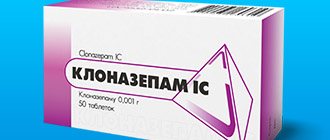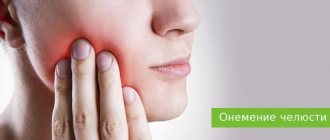The birth of a baby is always a joy for young parents. Naturally, all the attention of the mother and father is focused on the child. They can't get enough of how well he eats, sleeps and smiles back at them.
- Causes of lower lip tremor in babies
- Complications and consequences of tremor
- What measures should be taken if a baby’s lower lip is shaking?
But when the baby starts crying and the parents notice their lips trembling, they become alarmed. Therefore, we will look at why a newborn’s lower lip is shaking.
Causes of lower lip tremor in babies
Often mothers notice that their child’s lower lip shakes when the baby is at rest. And here the parents begin to panic. The thought immediately pops into their head that their little one is seriously ill with something.
Tremor is a shaking associated with involuntary contraction of the mental, triangular and quadratus muscles of the lower lip. Now let's look at the reasons for the formation of tremors from the norm and pathology.
- Response to stimuli (cold, stress, loud sound, sudden influx of bright light).
- When a newborn is stressed, an uncontrolled amount of norepinephrine is released from the adrenal cortex, which enters the bloodstream. NA causes vasospasm and contraction of smooth muscle tissue.
- An underdeveloped central nervous system is unable to regulate the baby's movements.
Among the stressful situations why a newborn's lower lip shakes, one can highlight: bathing, intestinal colic (pain), the moment of changing clothes, a state of hunger, and ordinary fatigue.
- Involuntary muscle contraction at rest.
- Joint trembling of the chin and lower lip, limbs, head.
- Frequently recurring tremors.
- After three months of age, trembling becomes more frequent.
The causes of pathological tremor are:
- prematurity (in premature children, trembling is observed up to 1.5-2 years);
- stress during pregnancy;
- developmental disorder of the peripheral nervous system (PNS);
- increased ICP (intracranial pressure);
- increased blood sugar in a newborn;
- maternal diabetes mellitus or impaired glucose tolerance during pregnancy;
- birth trauma (long, protracted labor; injury received when the head passes through the birth canal);
- Polyhydramnios, infections during pregnancy and a deficiency of essential microelements and vitamins (in particular Mg and B vitamins) can cause disruption in the development of the central nervous system (hereinafter referred to as the CNS) of the fetus.
Why lips shake - possible reasons
The causes of lip tremors can be either purely psychological or physiological.
A person’s lips tremble at a moment of strong excitement or after a serious shock, and this is a normal phenomenon, the body’s response to the influence of stress factors. But there may be other reasons leading to this phenomenon, and some of them are pathological in nature.
Let us consider in more detail all the possible causes of trembling and tremor of the lips in adults.
Psychological reasons
Psychogenic causes of lip tremors that have no physical basis are described here.
- Emotional disorders. Or, simply put, nervousness, a tendency to neurosis, panic, hysteria, suspiciousness.
- Prolonged stress, which can lead to a weakening of the nervous system.
- Severe fatigue, leading to hypertonicity of the muscular system.
- Asthenia. A feeling of lack of sleep, constant fatigue, lack of vitality, nervous tics are typical symptoms of chronic fatigue syndrome or asthenia, one of the symptoms of which may be lip tremor.
Facial nervous tics almost always occur due to high nervous tension.
This could be a period of passing exams, a conflict situation in the family, separation from a loved one, or the death of someone close. There are a lot of situations in our world that can cause nervous tension even in the most mentally stable person.
On a note!
An article was published in the journal Movement Disorders that describes the relationship between stress levels and the conditions that cause facial muscle spasms.
Scientists have found that stress and anxiety worsen spasms, and reducing anxiety reduces twitching in facial muscles, such as an adult's lower lip twitching.
Another study by Australian scientists found that facial twitching was worse in people who were under severe emotional or psychological stress.
Physiological causes of lip tremor
The reasons described below are associated with various disorders and diseases in the body.
- Abuse of alcohol and other toxic substances.
- Lack of vitamins and microelements in the body, especially: potassium, magnesium, iodine, vitamin B6, vitamin D.
- Excessive consumption of caffeine and other substances that stimulate the nervous system.
- The result of taking certain medications.
- Hemifacial spasm . There is a sharp contraction of the facial muscles, which is repeated in nature.
- Hypoparathyroidism. The pathology is characterized by a reduced level of secretion of parathyroid hormone, which is necessary to maintain calcium-phosphorus balance.
- Parkinson's disease. Usually accompanied not only by trembling of the lips, but also by tremors of the hands, twitching of muscles throughout the body.
- Tourette's syndrome . It can provoke all kinds of spasms, including frequent twitching of the lips.
- Bell's palsy . It appears in the case of damage to the facial nerve by a viral infection. Also called “facial nerve neuritis”.
- Multiple sclerosis . As a rule, it is difficult to diagnose in the early stages; twitching of the facial muscles is one of its characteristic signs.
- Essential tremor . It manifests itself as trembling of the lips, hands, legs, vocal cords at the moment when a person shows his emotions or is very tired.
- The presence of a traumatic brain injury or organic brain damage can also be manifested by twitching of the lips.
- DiGeorge syndrome . The missing chromosome is thought to cause a variety of symptoms, including muscle spasms. Typically, a blood test can confirm the presence of DiGeorge syndrome.
- Multiple sclerosis . The disease can be difficult to detect in the early stages, and facial muscle twitching is one of the symptoms that people with multiple sclerosis complain about in the early stages.
The appearance of tremors in the lips and body may indicate the presence of an acute infectious disease. Typically, such a tremor is accompanied by aches throughout the body and fever.
Also, lip tremor sometimes occurs during the recovery period after surgery, after heavy blood loss.
A lip tic may indicate problems with the central nervous system. Various types of infections, brain injuries, manifestations of atherosclerosis, encephalitis, and leptospirosis are accompanied by frequent stereotypical contractions of small muscles.
Other factors
The reasons that the upper lip twitches can also be:
- hypothermia;
- long exposure to drafts;
- head injuries;
- uncomfortable sleeping position;
- operations;
- anti-aging procedures;
- vaccinations;
- complications after dental procedures.
Important!
If the lip trembles only on the right or left side, it is advisable to urgently visit a neurologist and psychotherapist for a diagnosis. To dull the symptoms, you are allowed to take No-shpa and valerian tablets on your own.
Complications and consequences of tremor
Physiological tremor does not pose any danger to the health of an infant. After 3-4 months after birth, trembling of the chin and lower lip disappears and no longer bothers either the child or his parents.
As for pathological tremor, here things are much more complicated. Prolonged and frequently recurring tremor is the first alarm bell indicating neuropathy. Involuntary contraction of the muscles of the chin, lips, upper and lower extremities, and head may indicate the presence of perinatal encephalopathy in the baby.
This pathology may include various disorders of the central nervous system that arise as a result of intrauterine development. If you consult a doctor in a timely manner, the disease can still be treated.
If the tremor of the lips and chin is not caused by neurology, then it is necessary to undergo a set of examinations to determine whether there is a deficiency of Ca and Mg in the baby’s body, and diabetes mellitus.
Treatment methods for lip tremor
Treatment for nervous tics depends on the cause. It doesn't matter whether the upper or lower lip twitches. Pathological changes occur in the body. A nervous tic requires a medical examination, diagnosis, determination of the cause, and appropriate treatment. Measures to eradicate the disease:
- Change your diet, eat more foods containing magnesium and potassium (dairy, fish, vegetables, fruits).
- Get rid of bad habits (drinking alcohol, drugs, smoking).
- Vitamin and mineral complexes in the form of tablets will help nourish the nerves and increase immunity (Complivit Antistress, Aevit, Asvitol).
- Take sedatives (valerian tincture, Novo-Passit). Tea with honey, lemon balm, motherwort, hops, and chamomile will help.
- Relaxing massage, relaxation exercises.
- Normalize your sleep and rest patterns, eliminate the influence of TV and computer. Spend no more than 2 hours a day on equipment.
- Aromatherapy with essential oils will help you relax and restore vitality.
What measures should be taken if a baby’s lower lip is shaking?
Above we discussed why a newborn’s lower lip shakes. Now let’s look at how parents should act in such a situation. When a pathological tremor has been identified in an infant, a neurologist will treat it.
When an infant’s lower lip and chin shake under stress, you need to do the following:
- Do not panic and do not jump near the baby shouting “Oh!” and “Ay!” The baby needs to create a cozy and comfortable environment. Better yet, kiss the little one!
- Get rid of the cause of stress (turn off the music, turn off too bright lights).
- If you have the opportunity to breastfeed your baby, then you need to continue in the same spirit. No mixtures!
- Control your sleep patterns. Feeding, sleeping, and waking the child should take place at the scheduled time.
- Walk with your baby in the fresh air for at least 3 hours.
- Pay attention to the baby's clothing. It should not allow the child to overheat.
- Feel free to harden your baby by wiping him with a towel.
- Massage.
After visiting a neurologist, you may be prescribed a relaxing massage and sea salt baths. The massage procedure can be carried out either in a clinic with a massage therapist or at home.
The massage itself should not last more than 10 minutes.
Knowing all this, you shouldn't panic. If you are concerned about tremor of the baby's lower lip, contact your local pediatrician, who will prescribe an examination if necessary.
www.preobrazhenie.ru - Transfiguration Clinic - anonymous consultations, diagnosis and treatment of diseases of higher nervous activity.
- If you have questions for the consultant, ask him via a personal message or use the “ask a question” form on the pages of our website.
You can also contact us by phone:
- 8 495-632-00-65 Multichannel
- 8 800-200-01-09 Calls within Russia are free
Your question will not remain unanswered!
We were the first and remain the best!
CREATE NEW MESSAGE.
But you are an unauthorized user.
If you have registered previously, then “log in” (login form in the upper right part of the site). If this is your first time here, please register.
If you register, you will be able to further track responses to your messages and continue the dialogue on interesting topics with other users and consultants. In addition, registration will allow you to conduct private correspondence with consultants and other users of the site.
Any unusual behavior of a baby frightens young parents. When a newborn's lower lip trembles, they may panic. After all, he is so small and vulnerable. How to understand what is happening to him? The first thought that appears is that the child is cold. The mother takes the child in her arms and tries to warm him up. In the mother's arms, the baby often calms down, and his lips stop trembling. But there are times when a baby’s chin shakes in a warm room and in the mother’s arms. It is difficult for parents to find an explanation for this. This means that something is wrong with the baby and he is sick. Is this condition a sign of a disease?
Treatment
If there is a serious pathology that causes lip tremors, drug treatment will be required
It is important to understand that if one or both lips of an adult or child begin to shake systematically, it is better to consult a doctor immediately. The specialist will conduct a thorough examination, ask about accompanying symptoms, and, if necessary, prescribe a number of general tests, possibly some highly specific ones. When an accurate diagnosis is made, the doctor will prescribe appropriate treatment. Based on why the lower lip (or upper lip) is shaking, the following treatment options are possible.
- Taking sedative medications to calm the nervous system. This is Novopassit and valerian tincture. You can also prepare tea with chamomile, lemon balm or motherwort at home.
- If the reason is excessive tension, excess stress, then a relaxing massage, aromatherapy, relaxing bath, and breathing exercises will come to the rescue.
- If the cause is a lack of vitamins or certain microelements, in particular potassium and magnesium, then the doctor will prescribe a complex of vitamins or preparations with the missing microelements. The specialist may also recommend making changes to your usual diet, enriching it with foods high in the missing components.
- If your case is alcohol abuse, then the best recommendation is to get rid of the bad habit. If it is impossible to overcome this addiction on your own, your family doctor may refer you to a narcologist.
- Antidepressants may be prescribed in particularly severe cases, especially if there is a depressive disorder.
- In the case of a traumatic brain injury, medications are prescribed to restore cerebral circulation.
- If you have a computer addiction, you will receive recommendations on how to get rid of such addiction, because prolonged sitting in front of a monitor can also affect the nervous system, and you may notice that the lower lip (less often the upper) is shaking.
- The doctor may also advise changing your daily routine, normalizing the process of sleep and rest, since it is often the lack of sleep that can affect the appearance of lip tremor.
If you cannot cope with lip tremors on your own, be sure to consult a doctor. If the problem is psychological in nature, do not hesitate to see a psychologist. This specialist will help you quickly figure out what has accumulated inside, work through the condition, and get rid of trembling lips.
Physiological causes of chin tremors in infants
Trembling (tremor) of the chin is often observed in very tiny children. Typically, a newborn's lower lip will quiver when he is excited, cries a lot, is very upset, or is in pain. At this moment, his arms or legs may also tremble.
The cause of this condition is usually the imperfection of the baby’s nervous and endocrine systems. When he is scared or angry, his adrenal glands produce stress hormones - adrenaline and norepinephrine. The baby’s adrenal glands have not yet adjusted their work, so more hormones are produced than necessary. Excess hormones literally burn the baby's muscles, causing them to contract. But this condition passes quickly enough as soon as the baby calms down. Therefore, the tremor often disappears after the mother takes the child in her arms. The baby is calmed by contact with his mother's body.
Most children develop trembling of the chin or lips in the first months of life. It is considered normal for tremors to appear after prolonged crying, physical activity or emotional overexcitation. A baby may become overexcited after playing for a long time or due to a prolonged lack of sleep.
But why does a newborn's lip tremble when he is calm?
When to pay attention and possible dangers
People's hands shake from excitement and their lips tremble. Trembling appears after a sleepless night. There is no need to be nervous about this - proper sleep and sedatives will bring the nervous system into normal tone. Let's consider situations when a doctor's consultation is urgently needed:
- High blood pressure, pronounced pulsation of the carotid arteries, the left or right side of the face begins to go numb, the lips and chin tremble, the mouth is distorted - symptoms that require urgent treatment. During a conversation, a person expresses himself unintelligibly and incomprehensibly. The clinical picture suggests a stroke. Home treatment methods will not help; urgent hospitalization in a neurosurgical hospital is required.
- Severe pain on the face, pulsation of the corners of the mouth, lips, and increased temperature indicate trigeminal neuralgia. It is not recommended to start the pathological process. To avoid serious consequences, consult your doctor.
- In some cases, a nervous tic is a mask for psychiatric diseases (schizophrenia, bipolar personality disorder). Additional symptoms are inappropriate behavior, switching from one topic to another in the middle of a conversation, obsessive thoughts, ideas.
- Twitching of the orbicularis oris muscle occurs as a result of inflammation.
If the lip of an adult or child is shaking, there is no need to turn to signs and folk remedies. Consult a doctor to rule out the presence of diseases.
The article has been verified by the editors
Muscle hypertonicity
Sometimes a baby's shaky chin appears even when he is calm. The cause of this phenomenon may be muscle hypertonicity. This is a limitation of the voluntary motor function of the infant, caused by certain disorders in the development of the brain and peripheral nerve. With hypertonicity, the baby's muscles are overstrained. They remain tense even when the baby is in a relaxed state.
Other signs of hypertonicity are poor quality sleep (the baby sleeps little and poorly), increased irritability, frequent regurgitation after feeding, throwing back the head and unnatural arching of the body.
If you suspect hypertonicity, you can conduct an experiment. You need to take the baby under the armpits and place him on a hard surface, slightly tilting him forward. In this position, babies begin to instinctively move their legs, as when walking. A baby with hypertonicity will stand on his toes, while a healthy baby will stand on his entire foot. This is a classic diagnostic sign of hypertension and dysfunction of the nervous system.
A newborn's chin shakes: reviews
Below you can read reviews from mothers who encountered a similar problem.
A newborn's chin is shaking, reviews:
Elena, Gleb's mother, 4 months. Our problem with a shaking chin was observed from birth, and by 3 months it had not disappeared. The birth was very difficult, so immediately after birth we were registered with a neurologist. The doctor prescribed Glycine, Pantogam, and soothing baths. Now the situation has improved significantly, but the child is still very restless and does not sleep well. We try to calm the child down and establish a daily routine. We walk outside a lot.
Olga, mother of Matvey, 1 year old. Matvey was born to us as a healthy child, but the birth was very rapid. Therefore, until three months, I sometimes observed shaking of my chin. At a pediatrician's appointment at 6 months, the doctor noticed that the child had shaking of the lower lip. We were given a referral to a neurologist. During the examination, the doctor did not notice any obvious abnormalities; they did an ultrasound of the brain. No serious violations were identified; we were simply prescribed a relaxing massage. Now the child is a little over a year old, and there is no tremor, the baby is developing according to his age.
Oksana, mother of Sonya, 6 months. Unfortunately, the daughter appeared earlier than planned. She gave birth to a child at 7.5 months, he was premature, and his nervous system was unstable. Until she was 4 months old, she practically did not sleep and screamed constantly. There were also problems, frequent regurgitation. At the same time, tremors were observed in the arms, legs and chin. We were prescribed Ceraxon or Neuroxon. We chose a more expensive analogue of these drugs. We took Somazin syrup, as well as Glycine before bed. The medications helped, everything returned to normal. Nowadays, shaking of the chin is observed very rarely, and only in cases where there is an irritant. That is, if the child is cold or a loud sound is heard.
Crying
A lot of interesting things for young mothers can be found in the articles below:
- What kind of stool should a breastfed newborn have?
- What is normal room temperature? What temperature should the room be?
- How to calm a newborn, baby, child before bed?
- White, pink noise for newborns to help baby fall asleep
- Why does a newborn baby sleep with their eyes slightly open or slightly open?
A neurologist will check the child’s reflexes and be able to judge the baby’s development and the state of the nervous system. If the child is restless, often spits up, and the head is thrown back along with shaking of the chin, most likely the child has intracranial pressure. If you start treatment on time, there will be no consequences.
Other reasons
Muscle tremors often accompany in the first months of life those babies who suffered from oxygen starvation in the womb.
Oxygen starvation of the fetus is called hypoxia. It occurs when placental abruption, entanglement with the umbilical cord, in the event of a threat of miscarriage, or due to other disorders of placental blood flow. Fetal hypoxia can be caused by infectious diseases, polyhydramnios, or bleeding. Lack of oxygen affects brain development and causes tremors in children.
Chin trembling often affects children whose mothers were in a state of nervous tension during pregnancy. During pregnancy, a woman's body produces a lot of stress hormones. They penetrated the placenta and entered the baby’s blood. Maternal stress hormones could cause disturbances in the functioning of the child’s nervous and endocrine systems.
How to prevent lip tremors in a baby
Tremor prevention measures are aimed at maintaining a stress-free pregnancy and caring for the unborn baby.
- During pregnancy, a woman must understand that she is responsible not only for her own life, but also for the life of her baby. Planning a pregnancy also means giving up bad habits in advance. Be calm, live in harmony with the world around you, find the strength to avoid stress, and periodically listen to calm music.
- If you are sick with chronic or infectious diseases, then they should be cured, because everything is transmitted to the fetus at birth through the placenta.
- Visit your doctor regularly and follow all his instructions.
Fortunately, tremor in an infant is rarely a symptom of severe neurological diseases. And it occurs only in 50% of babies. If you follow your doctor's recommendations during pregnancy, you can avoid the appearance of tremors.
The article has been verified by the editors
When should tremors be treated?
As a rule, lip trembling in most children goes away on its own by the age of three months. If at 3 months the baby continues to suffer from tremors, he may have developmental pathologies. A particularly alarming sign is tremor of the limbs and head, which does not weaken over time, but even intensifies. This indicates a clear neurological disorder.
This condition may indicate that the child has hypocalcemia, hyperglycemia, hypomagnesemia, sepsis, intracranial hemorrhage, or increased intracranial pressure. Therefore, the baby urgently needs to be shown to a neurologist.
It is also recommended to consult a neurologist if there is a suspicion of hypertension in the baby.
In addition to drug treatment, the doctor will prescribe therapeutic exercises and massage. Swimming is very beneficial for all children with tremors and other manifestations of nervous disorders. You can visit the baby pool or organize swims at home in the bathroom. Such procedures have an excellent effect on the baby’s nervous system and muscle tone. At home, you need to create a comfortable, calm and peaceful environment for your child.
Drug treatment
What to do if your lips twitch? You need to adjust your diet. The menu should contain all the necessary vitamins and minerals: magnesium, glycine, vitamin C, B, D, E, A, calcium. To quickly alleviate the condition, you can independently take noshpa or spasmalgon and a mild sedative (valerian or motherwort).
If this condition occurs in children, it cannot be treated with any medications. It is better to consult a doctor, undergo examination and treatment. Multivitamin complexes and soothing teas are prescribed. For some people, treatment is done through hypnosis. You also need to change your lifestyle and improve your diet.
The doctor usually prescribes the following medications: novo-passit, thioridazine, cinnarizine, phenibut, haloperidol, diazepam, calcium gluconate. Infusions of motherwort, valerian, hops, chamomile, and hawthorn are also prescribed. The doctor also prescribes a course of relaxing massage, electrosleep, and acupuncture. In particularly advanced cases, an injection of botulinum toxin will help.









